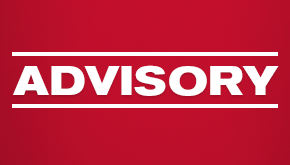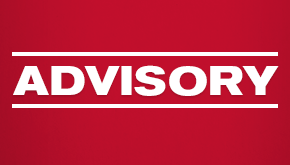Tax Provisions Under the CARES Act
Recovery Rebates for Individuals
Eligible individuals would be allowed a credit equaling $1,200 (or $2,400 for joint files), plus $500 for each qualifying child. The credit is reduced by $5 for each $100 that a taxpayer’s income exceeds the phase-out threshold (i.e., $150,000 for joint filers; $112,500 for heads of households; $75,000 for all other filers). For this purpose, “eligible individual” means any individual other than nonresident aliens or someone who can be claimed as a dependent. Additionally, estates and trusts are not eligible for the credit.
The rebate is treated as advance refund of a 2020 tax credit. Taxpayers would have to reduce the amount of the credit available on their 2020 returns by the amount of the advance refund payment that the taxpayer receives.
Advance Refund of Payroll Tax Credit Under Families First Coronavirus Response Act (FFCRA)
The CARES Act would allow advance refunding of the payroll tax credits provided under the FFCRA. Under the provision, the credit for required paid sick leave and the credit for required paid family leave could be refunded in advance (by using the forms and instructions that the IRS will provide). Furthermore, the IRS would be instructed to waive any penalties for failure to deposit payroll taxes, if the failure is due to an anticipated payroll tax credit.
Employee Retention Tax Credit and Delay of Payroll Tax Payments
An employer whose trade or business is fully or partially suspended due to COVID-19, or who experiences a decline of at least 50% in gross receipts the previous year, would receive a refundable credit against employment taxes of 50% of qualified wages, up to $5,000 per employee. For employers with more than 100 full-time employees, qualified wages are wages paid to employees who are not providing services due to COVID-19. For employers with fewer than 100 full-time employees, qualified wages are any wages paid to employees during a full or partial suspension of business, or while the employer is experiencing a significant decline in gross receipts.
Moreover, the Act would allow employers and self-employed individuals to defer payment of the employer’s share of Social Security tax. Deferred employment tax would be required to be paid over the next two years, with half of the amount due Dec. 31, 2020, and the other half by Dec. 31, 2022.
Changes to Charitable Contribution Rules
The Act would allow a charitable contribution deduction of up to $300 for cash contributions, even if an individual does not itemize deductions. Additionally, the Act disregards certain charitable contributions made in 2020 when applying the 60% limitation on charitable cash contributions made by individuals. For corporations, the Act would increase the 10% limitation on charitable contributions to 25%. Finally, for charitable contributions of food inventory, the Act would increase the 15% limitation to 25%.
Modification of Loss Limitations
The Act would allow net operating losses (NOLs) arising in a tax year beginning in 2018, 2019 or 2020 to be carried back five years. The Act also would temporarily suspend the 80% taxable income limitation, which would allow NOLs to offset income fully.
For taxpayers other than corporations, the Act would suspend for three years the loss limitation applicable to pass-through businesses and sole proprietors. The limitations would not apply for tax years beginning in 2018, 2019 and 2020. The provision would enable pass-through entities and sole proprietors to use excess business losses against non-business income.
Modification of Credit for Prior Year Minimum Tax Liability of Corporations
The Act would accelerate the ability of companies to recover alternative minimum tax (AMT) credits, which would allow companies to claim a refund for the AMT credits.
Modification of Limitation on Business Interest
The Act would temporarily increase the amount of interest expense businesses are allowed to deduct on their tax returns by increasing the 30% of adjusted taxable income (ATI) limit to 50% for 2019 and 2020. Also, for purposes of calculating the 2020 limitation, the provision would allow a taxpayer to elect to use their 2019 ATI instead of their 2020 ATI.
For partnerships, the Act provides a special rule, under which partnership business interest deductions for 2019 would still be limited to 30% of ATI. But, if in 2019 a partner is allocated suspended excess interest expense, 50% of the suspended interest would be available (i.e., deductible) for 2020. The other 50% of suspended interest carried over to 2020 would be deductible only when a partner was allocated excess taxable income or excess business interest income (which would be subject to the usual partner excess interest income rules).
Technical Changes for Qualified Improvement Property
The provision would enable business to write off immediately costs associated with improving facilities, rather than having to depreciate the improvements over the 39-year life of the building.
Temporary Exception from Excise Tax for Alcohol Used to Produce Hand Sanitizer
The provision would waive the federal excise tax on any distilled spirits used for or contained in hand sanitizer.


































